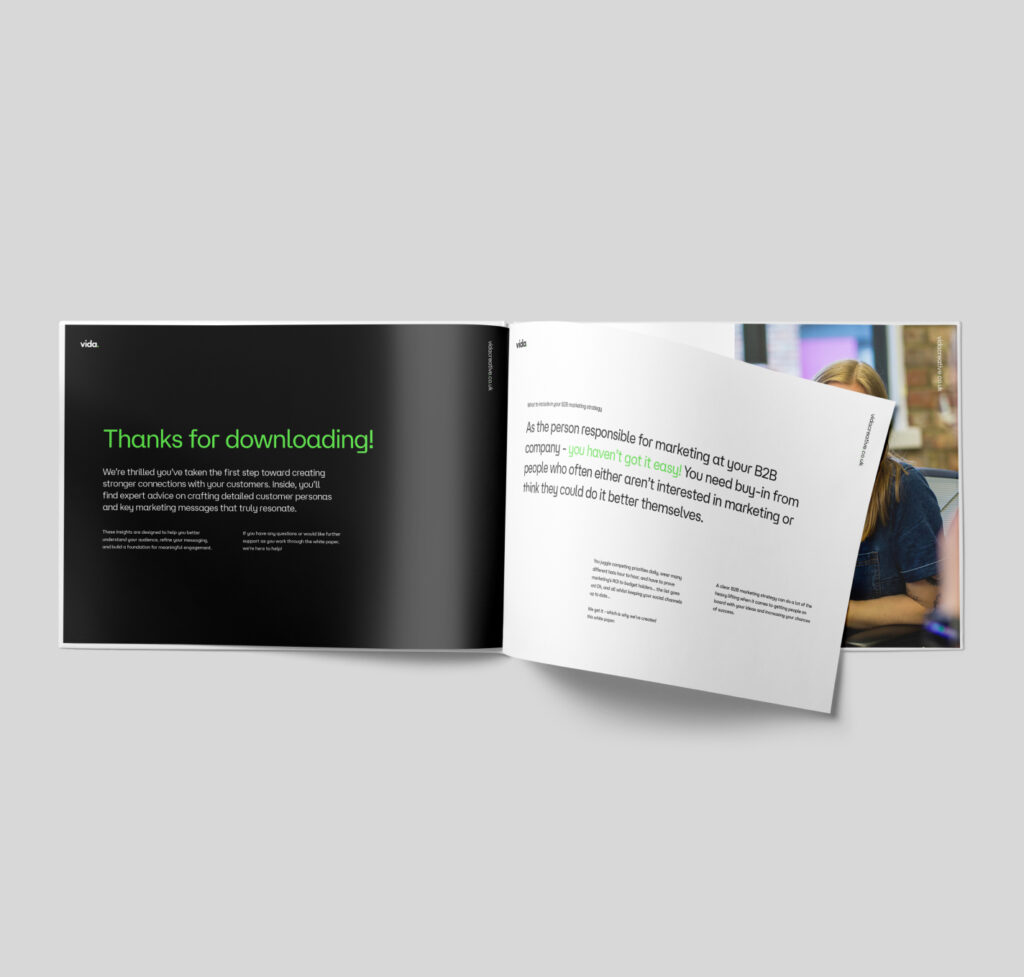Marketing is at the heart of your business’ growth and success. But when it comes to managing it successfully, there’s a lot to consider.
Should you hire a marketing manager in-house, outsource to an external agency, or combine both approaches? This blog will break down the pros and cons of hiring in-house versus outsourcing marketing efforts, and explain how a hybrid approach could benefit your business.
The Role of a Marketing Manager
An in-house marketing manager is employed directly by your business and responsible for all marketing activities.
Working alone or as part of a team, they’ll be responsible for campaign planning, social media management, brand development and more.
Pros of Hiring In-House
Greater Control
In-house marketing gives you complete control over your strategy and day-to-day marketing efforts. You’ll have direct oversight of marketing activities and be able to make real-time changes, allowing for quick decision-making.
Company-wide Collaboration
In-house marketing managers can work directly with other departments, making collaboration easier. If your in-house teams all work in the same office (or virtual workspace!), scheduling meetings and integrating marketing across your business becomes simpler and more efficient.
Quick Decision-Making
An in-house marketing team or marketing manager will be entirely focused on your band and develop a deep understanding of your business.
Combine this with easy access to key decision-makers, and your marketing team can respond to challenges and opportunities faster than an external agency.
Cons of Hiring In-House
Limited Expertise
There are countless activities that amount to your business’ marketing strategy. It can be difficult for one person – or even one team – to tick every box.
Your marketing manager might be a social media whiz, but they may lack the technical knowledge necessary for activities like SEO. Trying to cover every base in-house can lead to employee burnout and a diluted marketing strategy.
Higher Costs
Hiring in-house isn’t just about paying another salary. Your business becomes responsible for additional costs like pensions, holiday pay, sick leave, training, and more.
Research has shown that the true cost of an employee can be up to 1.75 times more than the salary alone. This can add up quickly, especially for smaller businesses!
Lack of Perspective
As we’ve already mentioned, in-house employees can gain a deep understanding of company culture. There’s a risk, however, that hiring only in-house can create an echo chamber. Without a fresh perspective, marketing efforts can become repetitive and lack creativity.
The Role of an Agency
Marketing agencies are outsourced by businesses to provide marketing services. Agencies offer a range of services that are available as one-off support or on a recurring basis, giving business owners flexibility.
Pros of Outsourcing
Specialised Expertise
Agencies are made up of team members with a wide range of expertise. Teams will have a vast range of experience – across areas of marketing, and across industries more generally. By outsourcing to an agency, businesses can broaden their marketing strategy to encompass SEO, social media, design, and more.
Scalability
One of the biggest advantages of working with an agency is the flexibility that comes from a scalable service. If you’re launching a big campaign, you can increase services; if finances are tight, you can scale them back. This flexibility will save your business money in the long run and keep your strategy responsive to your business’ needs.
Innovation
Bringing a fresh perspective to your business can help you stand out from the crowd! With a deep understanding of best practices, cutting-edge strategies and innovative technologies, marketing agencies can help your business grow through innovation.
Cons of Outsourcing
Communication and Coordination
Working with an agency requires strong communication to ensure your marketing goals are being met. If communication breaks down, your marketing strategy will suffer – you’ll have to go through a learning curve to figure out how you work best together, to make the most of the service you pay for.
Less Control
Since agencies work with multiple clients, they may not always be able to drop everything and respond to last minute requests or changes. You’ll have to trust the agency’s process and timelines, which might lead to some back-and-forth when it comes to feedback, compared to an in-house team.
Importance of Fit
Every agency has its own style, culture and approach, so it’s important to find one that aligns with your brand’s voice and values. A mismatch can lead to disruptions and marketing that doesn’t resonate with your audience. You’ll need to take some time to find an agency that aligns with your business’ culture, goals and strategies to avoid this.
The Hybrid Approach: Why Not Both?
If you’re still not sure which option is right for your business, you’re in luck: you don’t have to pick one or the other! For many businesses, hiring in-house talent whilst working with an agency can produce the best results.
Here’s an example of how a hybrid model could work for your business:
- Your in-house team use their understanding of the business to focus on branding, strategy and other day-to-day tasks.
- Where necessary, bring in marketing agencies to handle specialised tasks that your in-house team might lack the time or skills for, such as SEO, content writing and paid advertising.
This approach requires your teams to work closely – without strong communication, your marketing efforts will be confused and ineffective.
If you can establish strong relationships between you teams, you can maximise your marketing potential. This approach is flexible and scalable to your business’ needs, without losing the benefits that come with in-house marketing support.
Interested in agency support?
If you think your business could benefit from working with a marketing agency, or if you want to chat about how we could support you, get in touch with us today!


